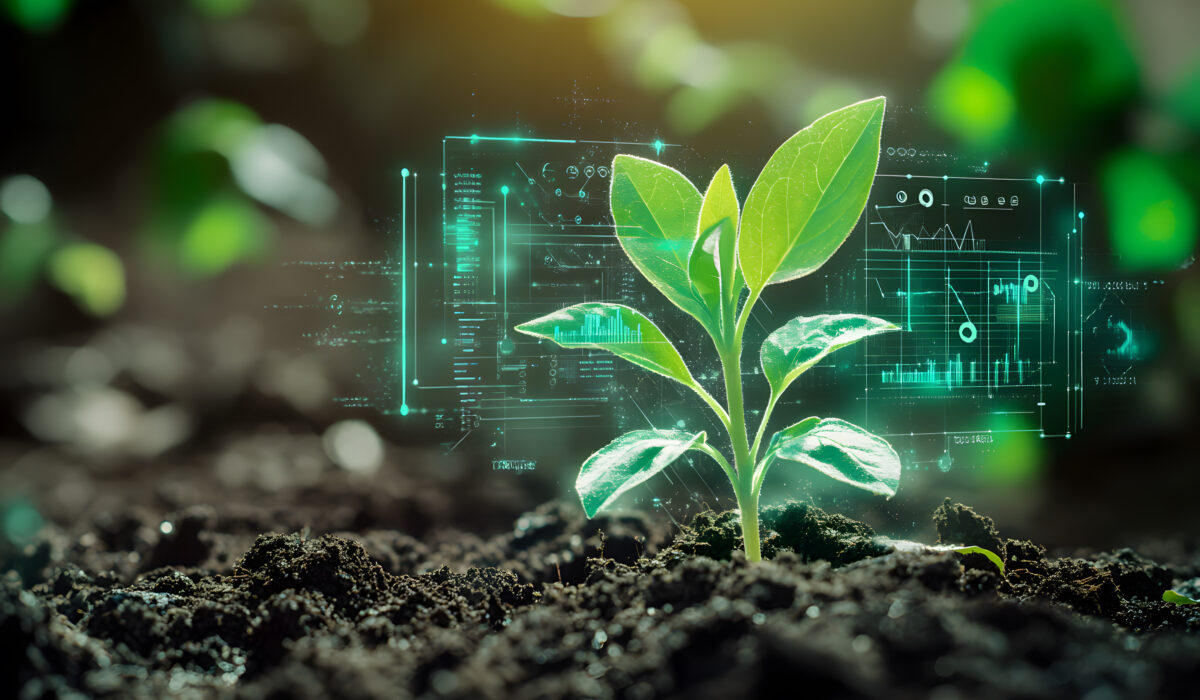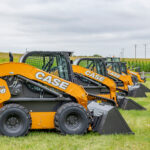2025 Farming Innovations: The Latest Technologies Transforming Agriculture
Farming Smarter in 2025: Embrace the Tech Transforming Agriculture
Agriculture is transforming rapidly as new technology reshapes how farmers work. Innovations like AI-powered tools and advanced equipment boost efficiency, increase yields, reduce environmental impact, and improve worker safety. Staying competitive in today’s evolving industry means adopting these game-changing advancements. In this blog, we’ll explore the most impactful farming technologies and why upgrading your operation with these tools can unlock new opportunities and drive success.
The Evolution of Farming Technology
Civilizations have grown alongside man’s ability to grow and cultivate food, and in many ways, the tools available to sustain and support population growth reflect the most innovative technologies of the time. Where once sticks, hoes, and sickles revolutionized farming, today’s farms are increasingly relying on tools that hadn’t even been imagined a few decades ago.
From drones that fly above the fields to irrigation systems that weave their way across fields, farming is firmly rooted in the digital age with the rise of precision tools. In many ways, agriculture’s shift towards agribusiness has necessitated a shift in how farmers approach the land. You may be feeling this shift as well.
Key Advancements in Farming Equipment for 2025
Modern farming is increasingly defined by the integration of advanced technology, which is reshaping traditional practices and driving greater efficiency across the industry. According to the latest figures from the USDA released in December 2024, some 68% of large crop farms are making use of precision agriculture technology. Let’s look at some of those tools and their potential to benefit your operation.
Autonomous Tractors
Driverless, or autonomous tractors, first introduced by John Deere in 2022, are gaining traction on farms due to their wide-ranging benefits. These innovative machines excel at precision planting, can operate around the clock, and significantly reduce the need for human labor, making them an increasingly popular choice in modern agriculture.
New tractor technology has always been a key factor in expanding a farm’s ability to increase output, and today’s autonomous tractors are poised to enable a significant leap in efficiency. Leveraging GPS technologies and the latest in artificial intelligence, these tractors are programmed to deliver a high tractive effort for purposes of tillage, among other agricultural tasks.
Smart Irrigation Systems
Resource management has become an increasingly important component of farming over the past half century, and smart irrigation systems are designed to address and maximize the benefits of integrating this knowledge. By measuring and monitoring weather and soil data, these systems optimize water use to lower water bills, improve crop health, and support sustainability efforts.
Falling under the broad category of IoT (the so-called “Internet of Things”), smart irrigation systems leverage wireless technology and connections to broader databases of knowledge to make data actionable in the moment, enabling a decision-making shift from reactive to proactive, making this innovation a key driver of higher yields and more efficient resource use.
Robotic Harvesters
If smart systems help increase crop yield, it makes sense to look towards technology to improve the harvest process as well. Robotic harvesting is gaining popularity, with machines now increasingly handling delicate and repetitive processes, including strawberry and apple harvesting.
Robotic harvesters address labor shortages while excelling at handling delicate fruits, increasing their market profitability, and minimizing waste. Their ability to operate around the clock and in various conditions further enhances their value in modern agriculture.
Crop Monitoring Drones
Although farming is traditionally a land-based endeavor, advancements in technology are elevating agricultural practices—quite literally—into the skies. Drones, as key precision agriculture tools, are playing an increasingly pivotal role in providing real-time field analysis, offering insights into pest control and crop health with unprecedented efficiency.
By enabling early detection of potential issues, these precision agriculture tools reduce the need for labor-intensive manual inspections. This proactive approach often leads to more targeted applications of chemicals and fertilizers, helping farmers minimize inputs while maximizing crop quality and marketability. The result is a more sustainable and profitable approach to modern farming.
Vertical Farming Units
While we’re looking skyward, it’s worth exploring another transformative innovation in agriculture: vertical farming technology. These cutting-edge indoor farming systems leverage hydroponics or aeroponics to enable year-round crop production in controlled environments.
The precision of vertical farming technology minimizes the need for pesticides, producing crops that appeal to health-conscious and sustainability-focused market segments. Additionally, its vertical design allows for farming in unconventional spaces and maximizes yields on smaller footprints, making it an ideal solution for urban areas and regions with limited arable land.
Precision Planting Equipment
Precision planting equipment is revolutionizing modern agriculture by leveraging technologies like GPS and automation to enhance efficiency. These advanced, data-driven systems ensure optimal seed placement and growth, enabling farmers to reduce waste and maximize yields without needing more land or resources. This approach not only boosts productivity but also supports more sustainable farming practices.
Why Upgrading Equipment Matters
In today’s evolving agribusiness landscape, success often comes down to working smarter, not harder—and modern farming equipment is designed to help you do exactly that. From planting to harvest, these advanced tools tackle challenges like stretched resources and rising costs all while improving efficiency. Many even enable more precise applications, reducing the need for pesticides and other inputs.
Upgrading your equipment isn’t just an expense—it’s an investment. Modern machinery can quickly pay for itself by lowering operational costs and boosting productivity, ensuring a strong return on investment alongside higher yields per hectare. Embracing the latest innovations can unlock new opportunities, enhance your farm’s profitability, and establish a competitive advantage for the future.
Why Finance, Not Lease
For farmers planning to invest in the future, financing offers a cost-effective and flexible way to acquire cutting-edge tools—without the constraints of leasing.
Financing stands out as the smarter choice for equipment acquisition because it provides ownership. This allows farmers to build equity in their machinery while sidestepping the limitations, restrictions, and ongoing costs often associated with renting or leasing. Ownership also offers the freedom to use and customize equipment as needed without worrying about lease terms or penalties.
With Blue Bridge Financial, financing becomes even more accessible. Our tailored solutions empower farmers to invest in advanced tools that boost productivity, reduce operational costs, and position their operations for sustainable, long-term success. Learn more about why financing is a better alternative to leasing and how it can help you achieve your goals.
Blue Bridge Financial Can Help You Achieve Your Goals
From autonomous tractors to smart irrigation systems and drones, modern technology is revolutionizing agriculture at a rapid pace. Successful farmers are expanding their horizons by embracing innovation, unlocking greater efficiency, higher yields, and improved resource management in the process. Staying ahead in this evolving industry means having access to the tools that can make a difference—and we’re here to help make that possible.
At Blue Bridge Financial, we specialize in equipment financing and have a proven track record of supporting the agricultural industry. Whether you’re looking to replace outdated machinery, scale your operations, or invest in the latest technologies, our Equipment Finance Agreements provide flexible, affordable solutions for purchases over $10,000. For added support, we also offer Working Capital Loans to help cover critical operational expenses, ensuring your farm has what it needs to thrive.
Getting started is simple. Our streamlined application process is designed to save you time, and our team is always ready to answer any questions or guide you through the next steps.
Don’t wait to take your farm to the next level. Contact Blue Bridge Financial today and start investing in the tools that will drive your success for years to come.
Frequently Asked Questions About Advancements in Farming for 2025
Autonomous tractors, smart irrigation systems, robotic harvesters, crop monitoring drones, and vertical farming units are among the leading advancements revolutionizing modern agriculture.
Autonomous tractors enhance efficiency by enabling precision planting, operating around the clock, and reducing labor needs. They leverage AI and GPS technology to perform tasks like tillage with greater accuracy.
Smart irrigation systems optimize water usage by analyzing weather and soil data, reducing water bills, supporting sustainability, and improving crop health through proactive resource management.
Financing through providers like Blue Bridge Financial offers a cost-effective way to acquire cutting-edge equipment. This approach allows farmers to own machinery, build equity, and customize it without the limitations of leasing.
Upgrading equipment increases efficiency, reduces operational costs, and maximizes yields. Investing in advanced tools also supports sustainable farming practices and provides a competitive edge in the evolving agricultural industry.
Any Questions? We'd Love to Talk:
About the Author
Nick Devernis is the Vice President of Business Development with expertise in credit analysis and equipment financing. With over 6 years in equipment financing, he offers a wealth of knowledge to readers of Blue Bridge Financial’s blog. He currently oversees the California office and leads the Sales and Marketing departments. Nick’s role as Vice President of Business Development involves management of the sales team, relationship management, and developing strategic partnerships to drive inbound and outbound originations.p> LinkedIn Profile






